(by contributor John Bleimaier)
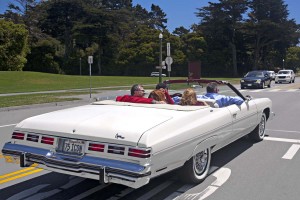 The automobile and the concept of freedom are intimately intertwined. The open road and the sense of mobility are at the epicenter of American culture. When foreigners think of our country, their predominant image is of the U.S. citizen behind the wheel of his car going wherever he chooses, whenever he chooses. Furthermore, the choice of vehicle driven by the free American represents a statement of his personal values and fundamental beliefs. This is the essence of the American dream.
The automobile and the concept of freedom are intimately intertwined. The open road and the sense of mobility are at the epicenter of American culture. When foreigners think of our country, their predominant image is of the U.S. citizen behind the wheel of his car going wherever he chooses, whenever he chooses. Furthermore, the choice of vehicle driven by the free American represents a statement of his personal values and fundamental beliefs. This is the essence of the American dream.
There is no question in my mind that if the US Constitution had been written in the 20th Century, the automobile would have found its way into the bill of rights. Freedom of religion, freedom of speech, freedom of assembly, the right to bear arms, the right to a jury trial, the abolition of cruel and unusual punishments – these would have been joined by the right to drive, free access to highways and bridges, as well as freedom of vehicular choice. Thomas Jefferson and his colleagues were molded by the independence of the frontier life style. Self-reliance and self determination were the natural by-products of an environment far removed from king and constabulary.
When the automobile came on the scene a century and a quarter ago, it was just in the nick of time to reclaim the sense of freedom that could otherwise have been eroded in a hyper organized modern society. It’s our job as car fanatics to ensure that the inalienable rights attendant upon individual locomotion are recognized, protected and enshrined in the sacred document of the republic. The 9th amendment to the Constitution guarantees that all the rights not specifically mentioned in the Bill of Rights and elsewhere are nonetheless vouched safe to the people. Well and good.
However, the Founders recognized that government is an inherently voracious entity which devours freedoms and resources. Thus they framed a unique statement of rights and responsibilities replete with checks and balances. They also provided for amendment of the Constitution in order for this document to address changing times. We now need a new constitutional amendment stating that driving an automobile is a basic human right, that governments and their agencies may not charge for the use of public roads and that there is fundamental automotive freedom of choice.
From the dawn of the automobile era Americans took for granted their inherent right to utilize this miraculous new instrumentality as they pleased. Note that in Great Britain and elsewhere in the Old World a very different mentality prevailed. A hundred years ago British law required motorists to drive behind a flagman on foot warning of an approaching motorcar. How thoroughly un-American.
There is a natural bureaucratic tendency to erode freedom even in our democratic society. Behold the invidious notion that driving is not a right but a privilege. Furthermore, governmental authorities have arrogated unto themselves the prerogative to charge tolls for the use of roads and bridges which were built with public funds. Big brother has even devised electronics which register your use of turnpikes and parkways so that you can be sent a monthly statement. Additionally a federal agency has the temerity to tell the populous what cars it may and may not import. The Founders would be indignant.
Because the aforementioned infringements have gradually crept into the body politic notwithstanding our Constitutional protections, it is time to amend that mighty instrument to set right the injustice.
If driving is a right your driver’s license can not be revoked without a trial before a jury of your peers. The anomaly of charging citizens for the use of public roads must be recognized for what it is: extortion. The convoluted red tape surrounding the importation of uncertified foreign cars must be cut. When we implement the foregoing agenda we will have given real meaning to the phrase, “land of the free, home of the brave.”
-John
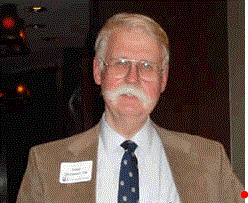 (Contributor John Bleimaier is an attorney at law, active Mercedes-Benz club officer, and automotive journalist for The Star magazine.)
(Contributor John Bleimaier is an attorney at law, active Mercedes-Benz club officer, and automotive journalist for The Star magazine.)
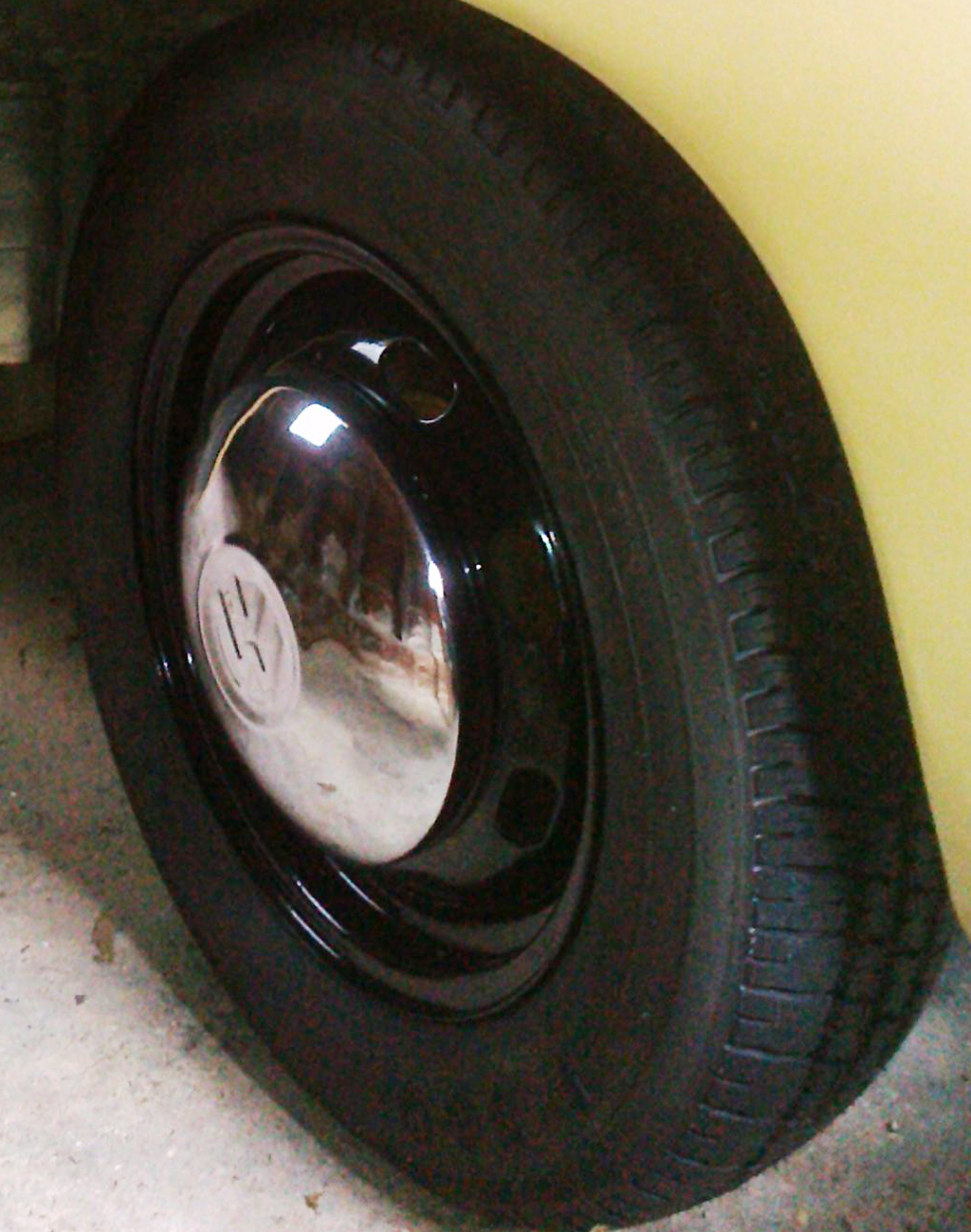 1969 Volkswagen Karmann Ghia wheelPhoto: Genna Rae
1969 Volkswagen Karmann Ghia wheelPhoto: Genna Rae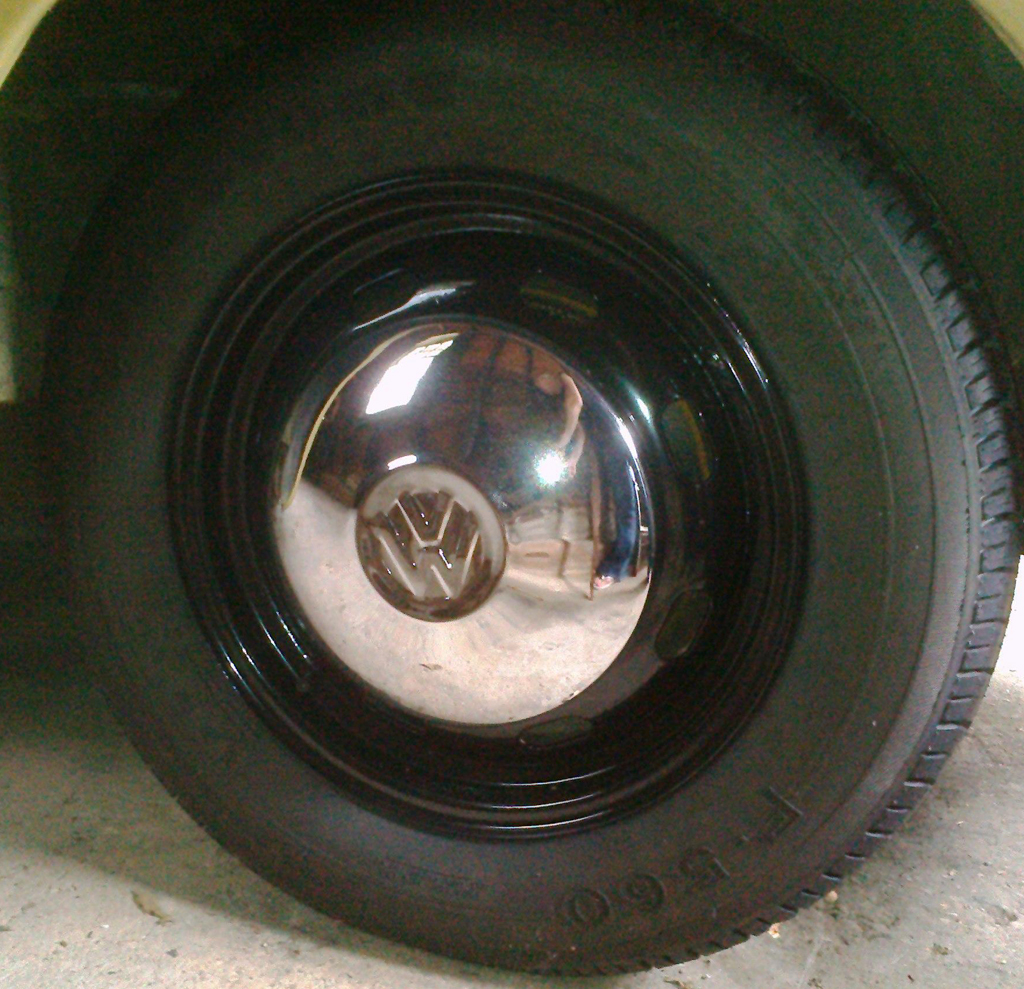 1969 Volkswagen Karmann GhiaPhoto: Genna Rae
1969 Volkswagen Karmann GhiaPhoto: Genna Rae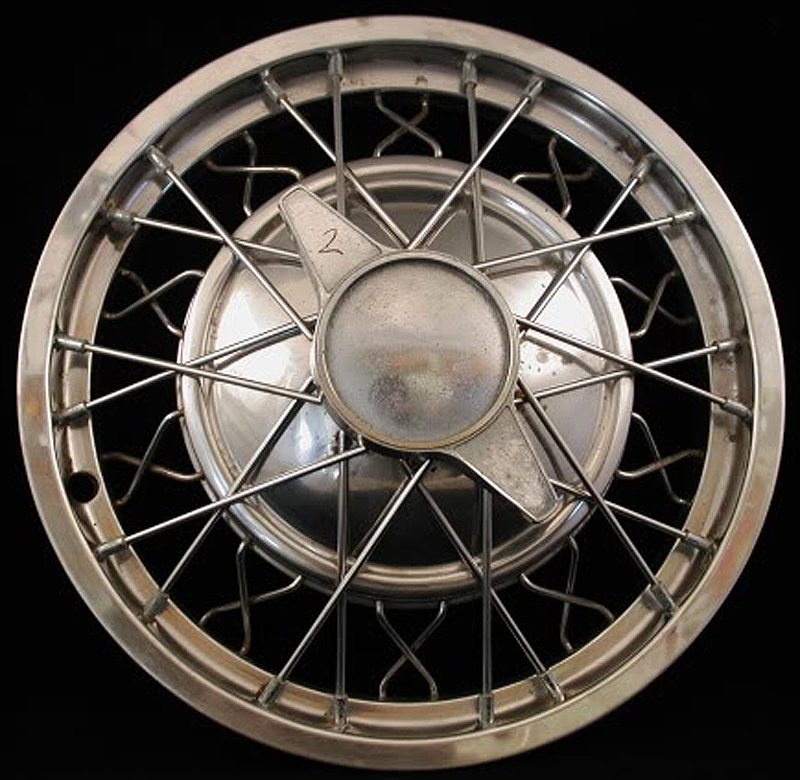 50s Calnevar aftermarket hubcaps shPhoto credit: T. Gorski
50s Calnevar aftermarket hubcaps shPhoto credit: T. Gorski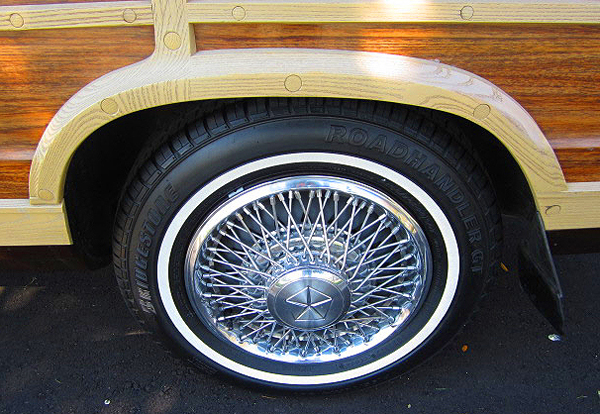 Chrysler LeBaron Town & Country wheel cover
Chrysler LeBaron Town & Country wheel cover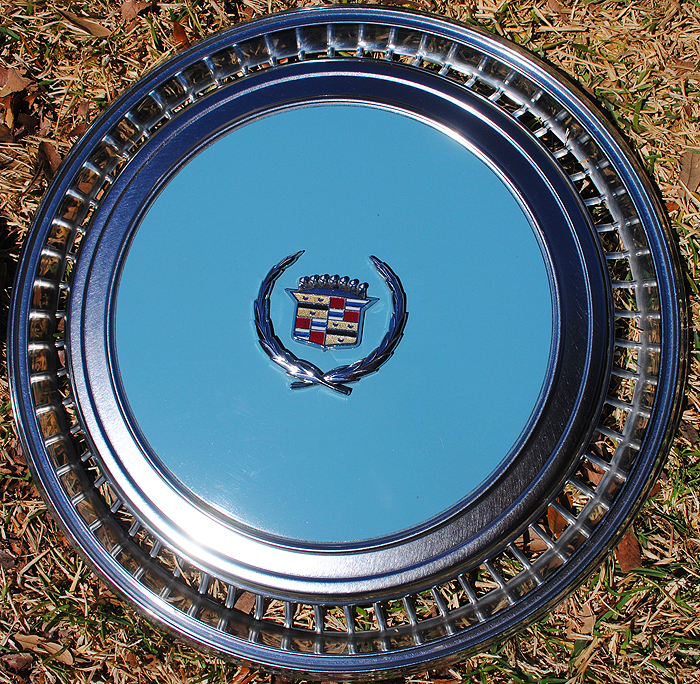 Cadillac Eldorado painted wheel cover 1976-78Photo: Nate Smith
Cadillac Eldorado painted wheel cover 1976-78Photo: Nate Smith 1974 - 1976 Lincoln Continental wheel coverPhoto credit: H. Carver
1974 - 1976 Lincoln Continental wheel coverPhoto credit: H. Carver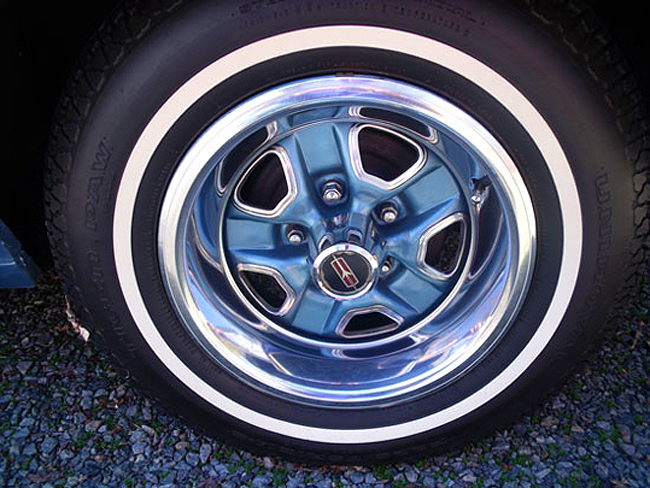 1969 Oldsmobile Cutlass Supreme rallye wheelPhoto: C. DeMarco
1969 Oldsmobile Cutlass Supreme rallye wheelPhoto: C. DeMarco Chrysler 1980s painted wheel coverPhoto: O. Stein
Chrysler 1980s painted wheel coverPhoto: O. Stein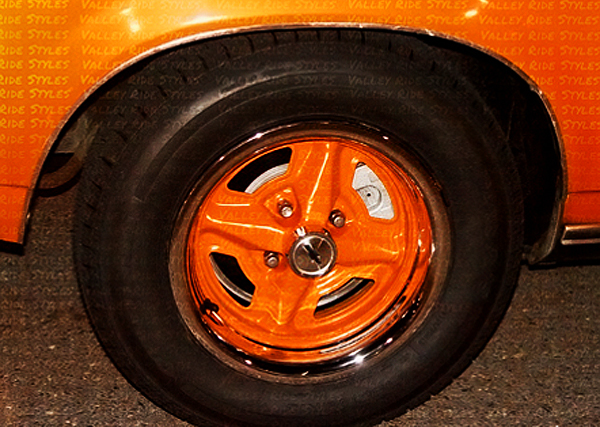 13-inch General Motors color matched wheel 1975-80Photo: Valley Ride Styles
13-inch General Motors color matched wheel 1975-80Photo: Valley Ride Styles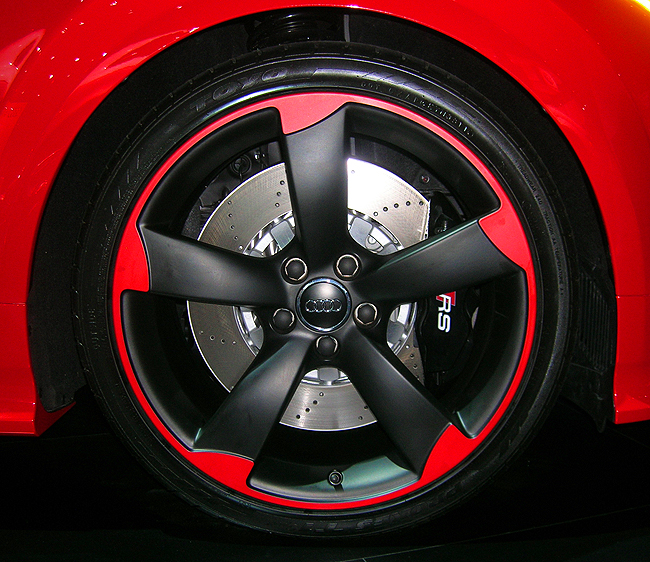 Audi TT RS wheelPhoto: Sean Connor
Audi TT RS wheelPhoto: Sean Connor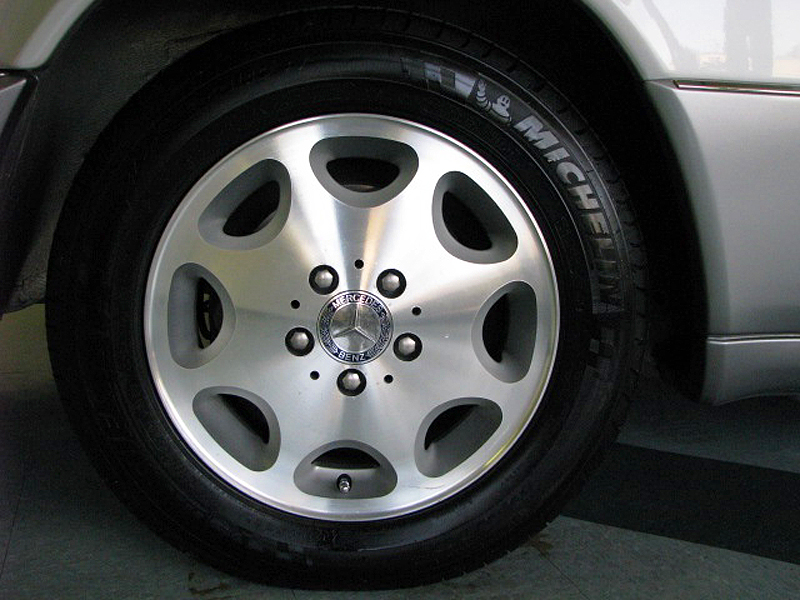 1994 - 1995 Mercedes E320 Cabriolet wheel
1994 - 1995 Mercedes E320 Cabriolet wheel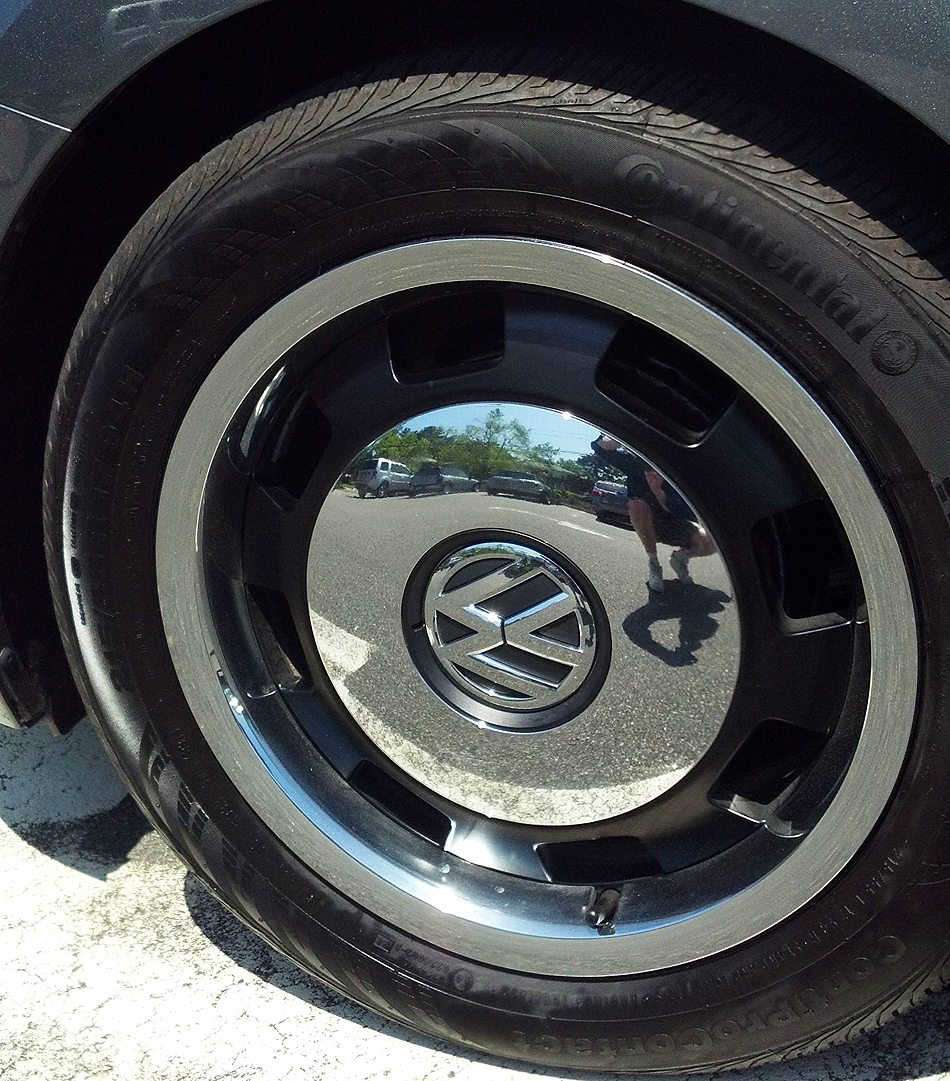 2012 Volkswagen Beetle 2.5 standard wheel
2012 Volkswagen Beetle 2.5 standard wheel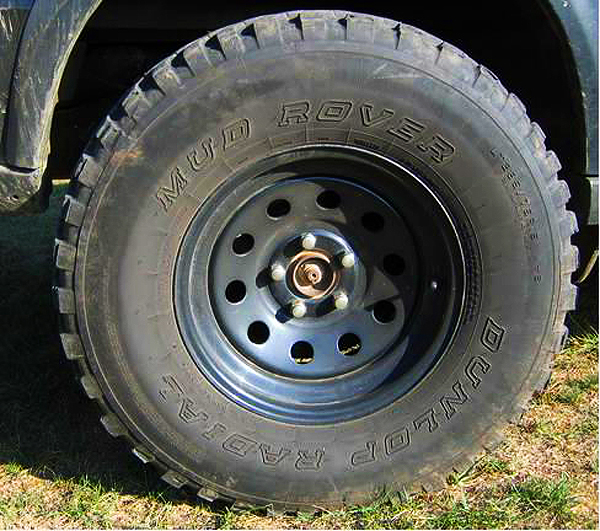 16-inch black steel Land Rover off-road wheelsPhoto credit: J. Getty
16-inch black steel Land Rover off-road wheelsPhoto credit: J. Getty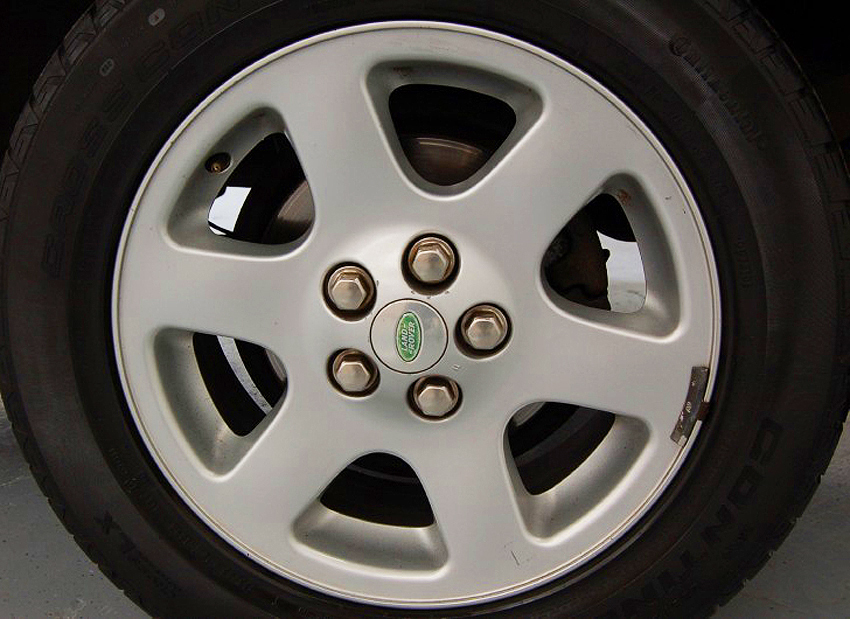 18-inch aluminum wheel on 2003 - 2004 Land Rover Discovery HSE
18-inch aluminum wheel on 2003 - 2004 Land Rover Discovery HSE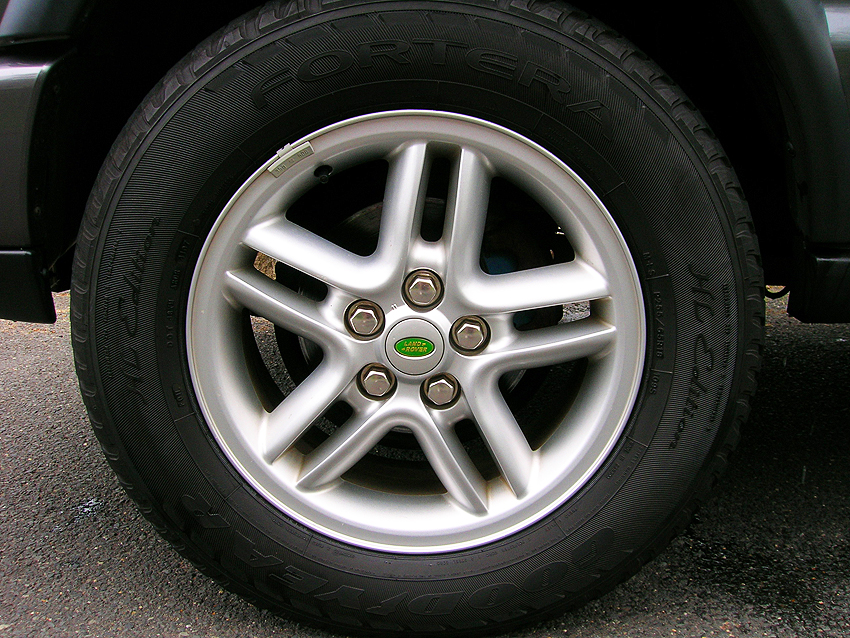 18 inch "Hurricane" aluminum wheel standard on 2002-2004 Discovery SE
18 inch "Hurricane" aluminum wheel standard on 2002-2004 Discovery SE 1957 - 1958 Pontiac wire wheel cover(Photo credit: R. Ulrich)
1957 - 1958 Pontiac wire wheel cover(Photo credit: R. Ulrich)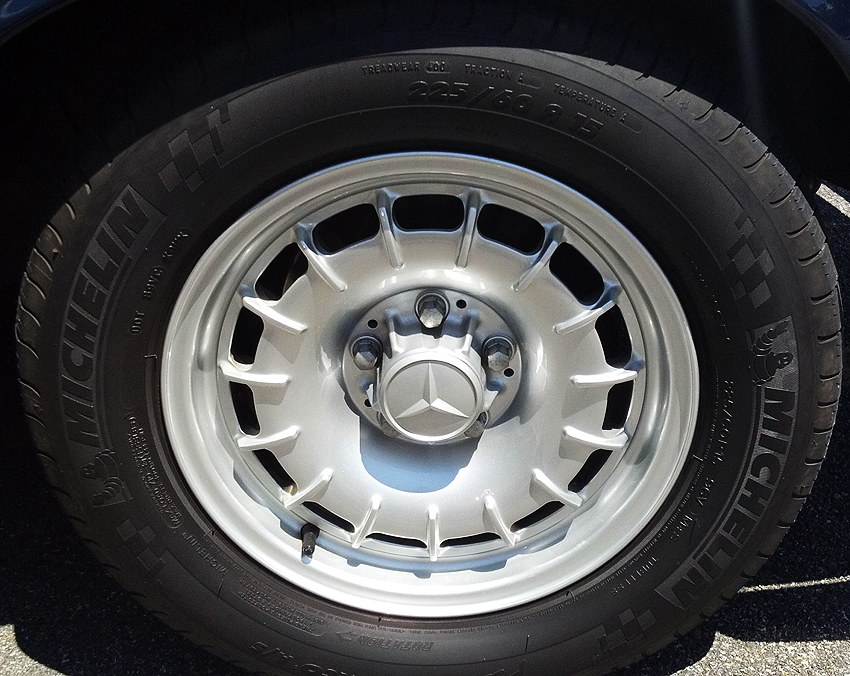 1972 Mercedes 280SE 4.5 equipped with repro 15-inch alloy wheels(Photo credit: Sean Connor)
1972 Mercedes 280SE 4.5 equipped with repro 15-inch alloy wheels(Photo credit: Sean Connor)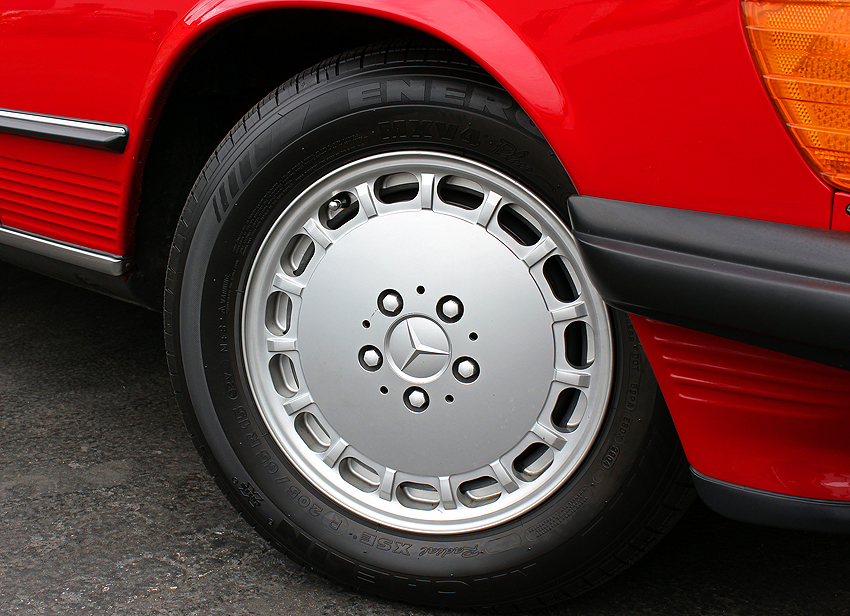 560SL 15-inch aluminum wheel
560SL 15-inch aluminum wheel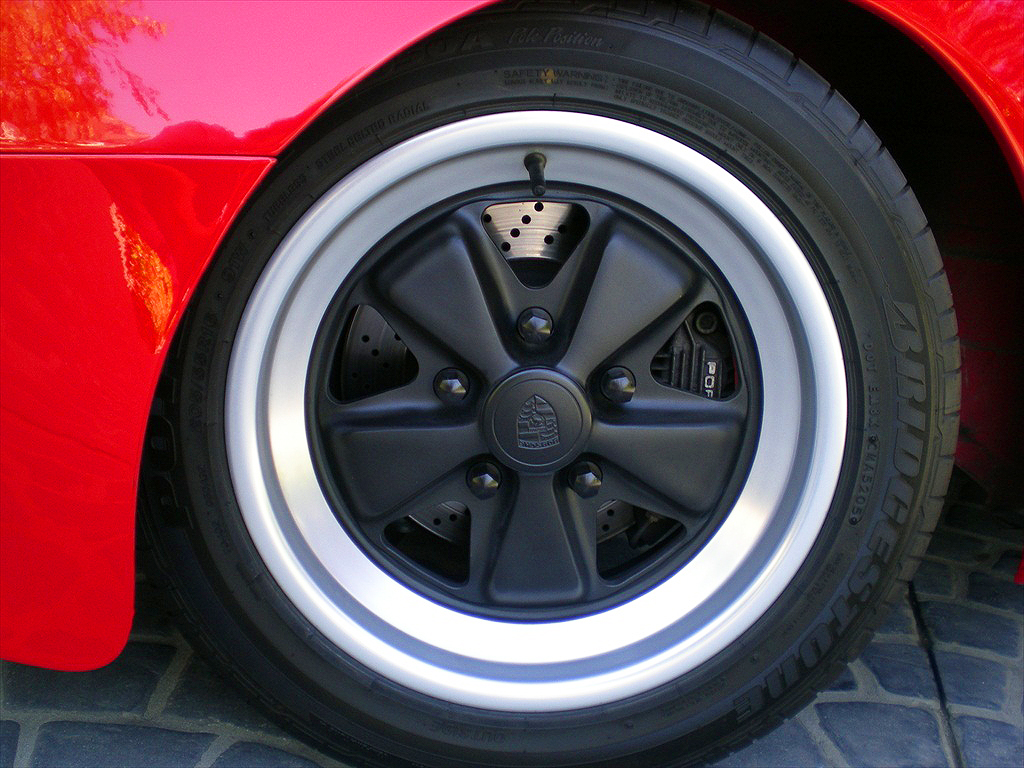 1981 Porsche 924 Carrera GT aluminum wheel
1981 Porsche 924 Carrera GT aluminum wheel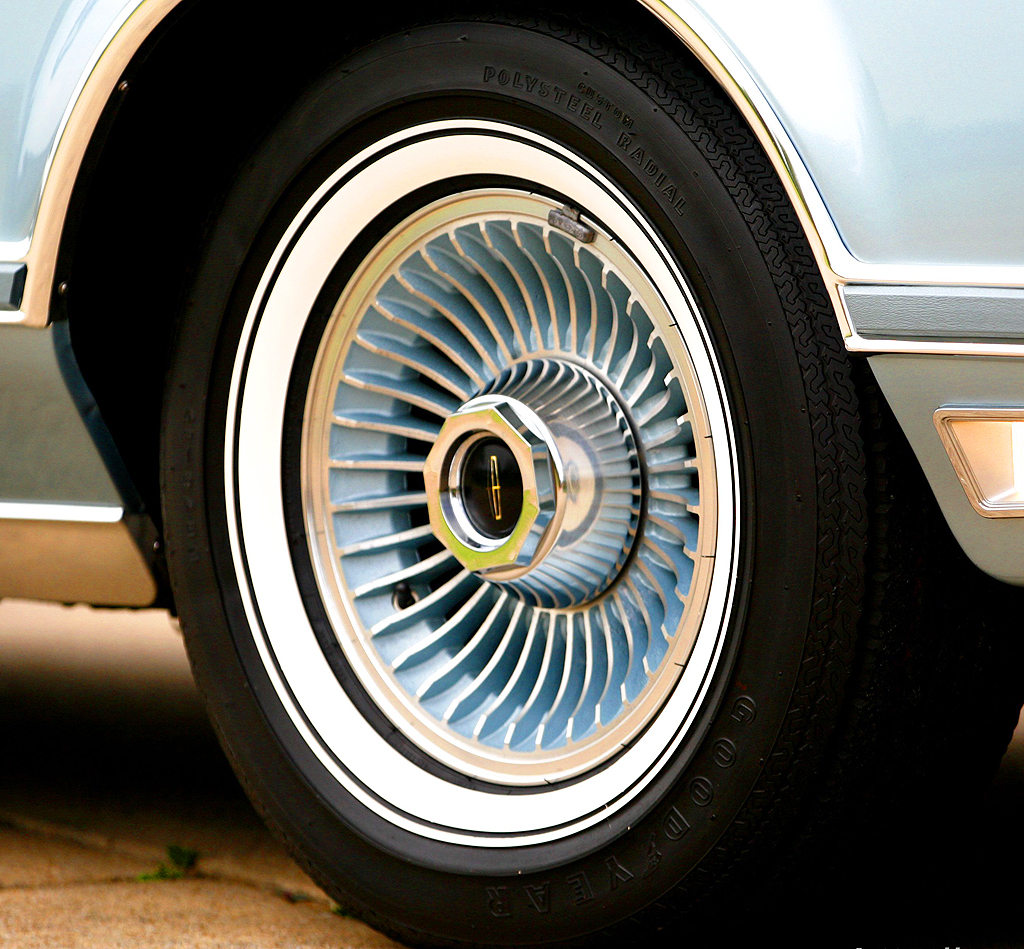 1978 Lincoln Mark V DJ blue wheel b(Photo credit: M. Garrett)
1978 Lincoln Mark V DJ blue wheel b(Photo credit: M. Garrett)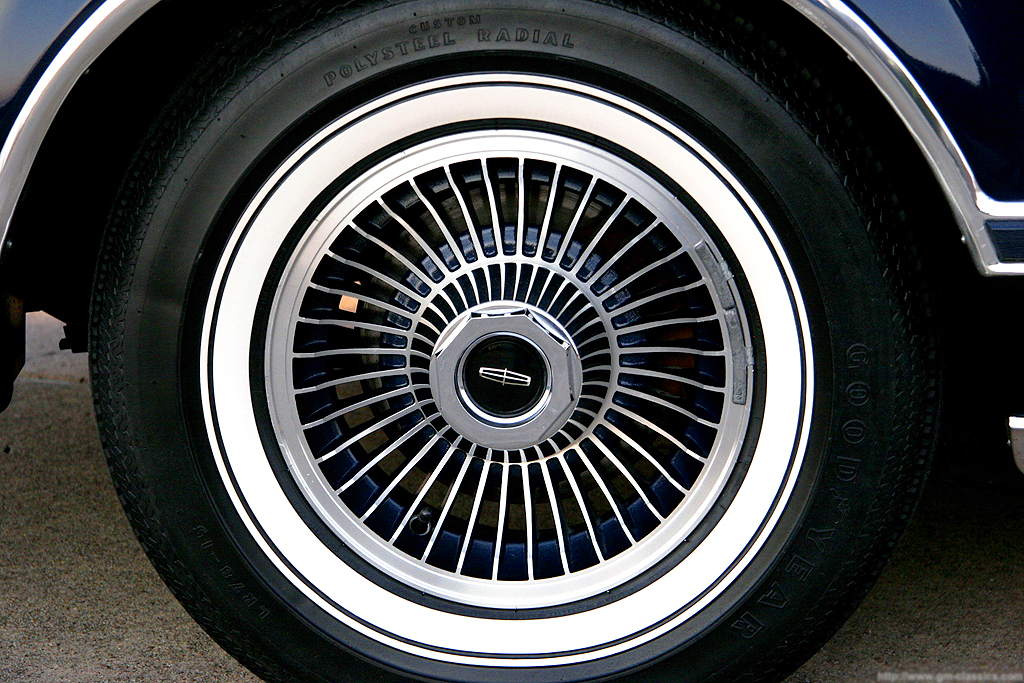 1979 Lincoln Mark V Collectors Series navy blue painted wheel(Photo credit: M. Garrett)
1979 Lincoln Mark V Collectors Series navy blue painted wheel(Photo credit: M. Garrett)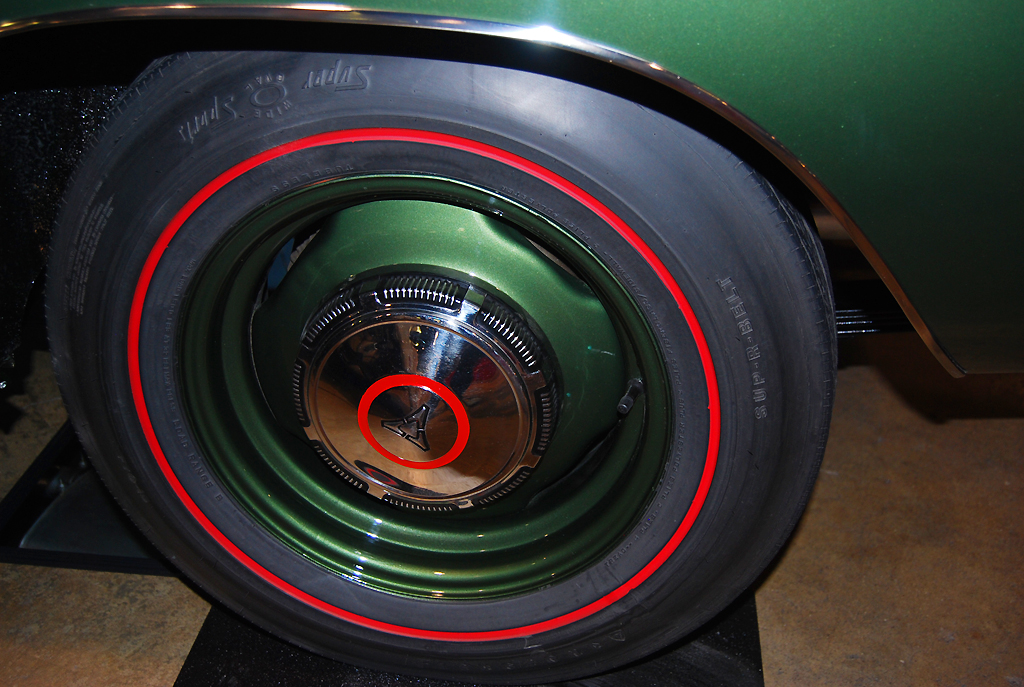 1969 Dodge Charger RT Hemi wheel with center hub cap
1969 Dodge Charger RT Hemi wheel with center hub cap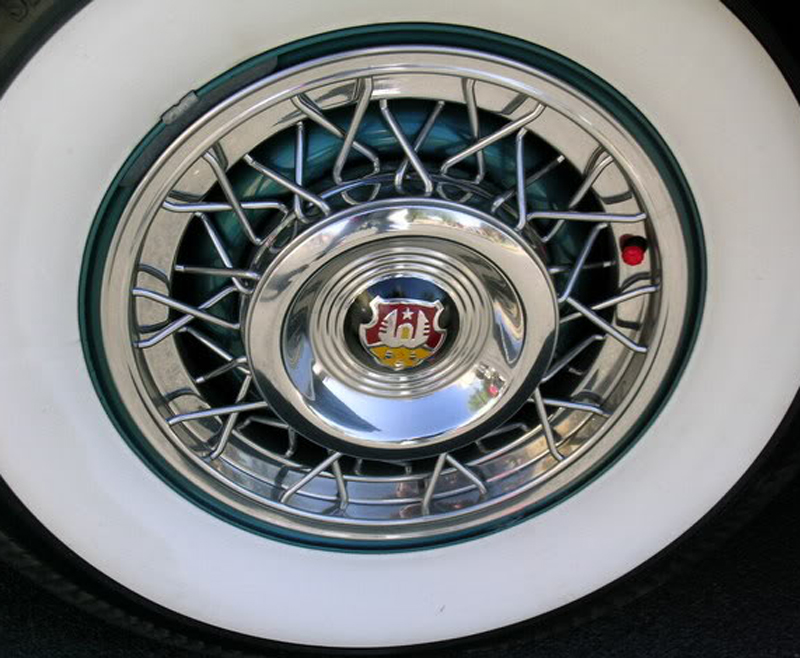 1953 Oldsmobile wire-wheel
1953 Oldsmobile wire-wheel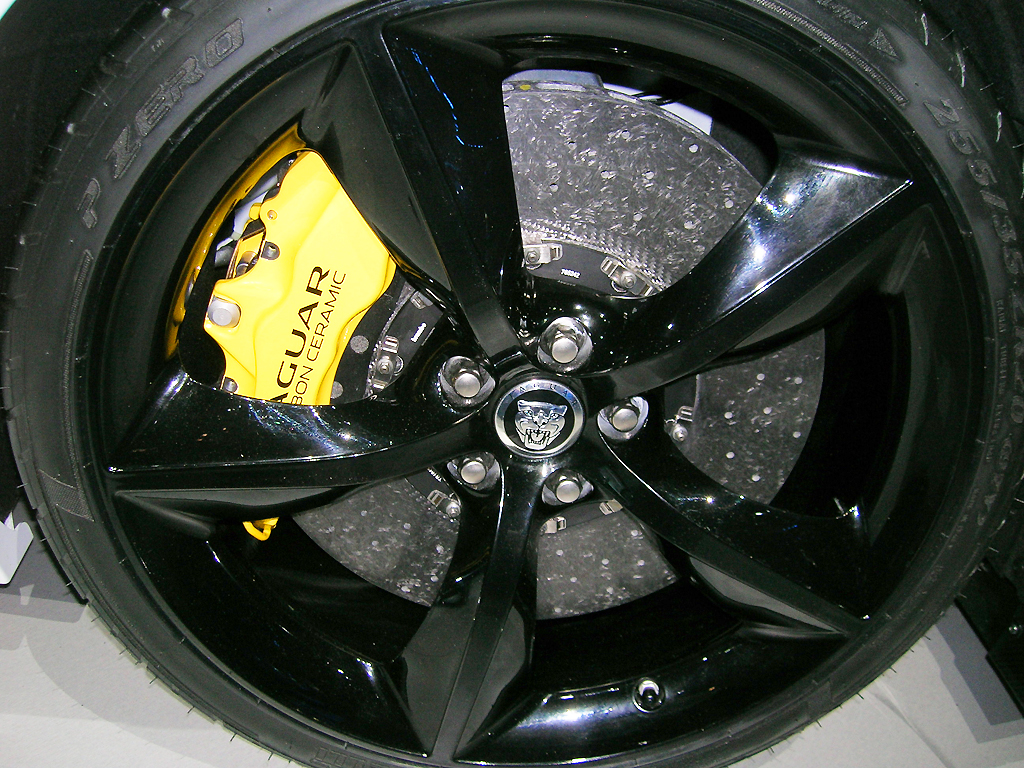 2014 Jaguar XK RS GT wheel at the 2013 New York Auto Show(Photo credit: Sean Connor)
2014 Jaguar XK RS GT wheel at the 2013 New York Auto Show(Photo credit: Sean Connor)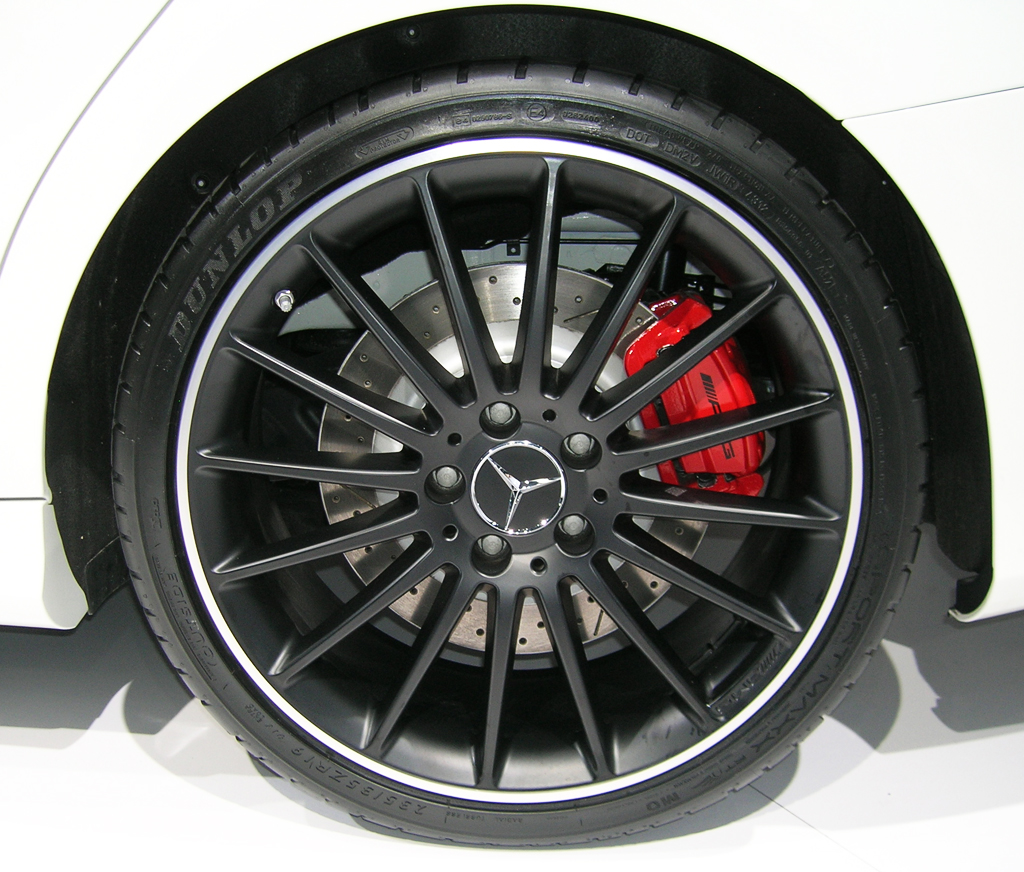 2014 Mercedes CLA45 AMG wheel at the 2013 New York Auto Show(Photo credit: Sean Connor)
2014 Mercedes CLA45 AMG wheel at the 2013 New York Auto Show(Photo credit: Sean Connor)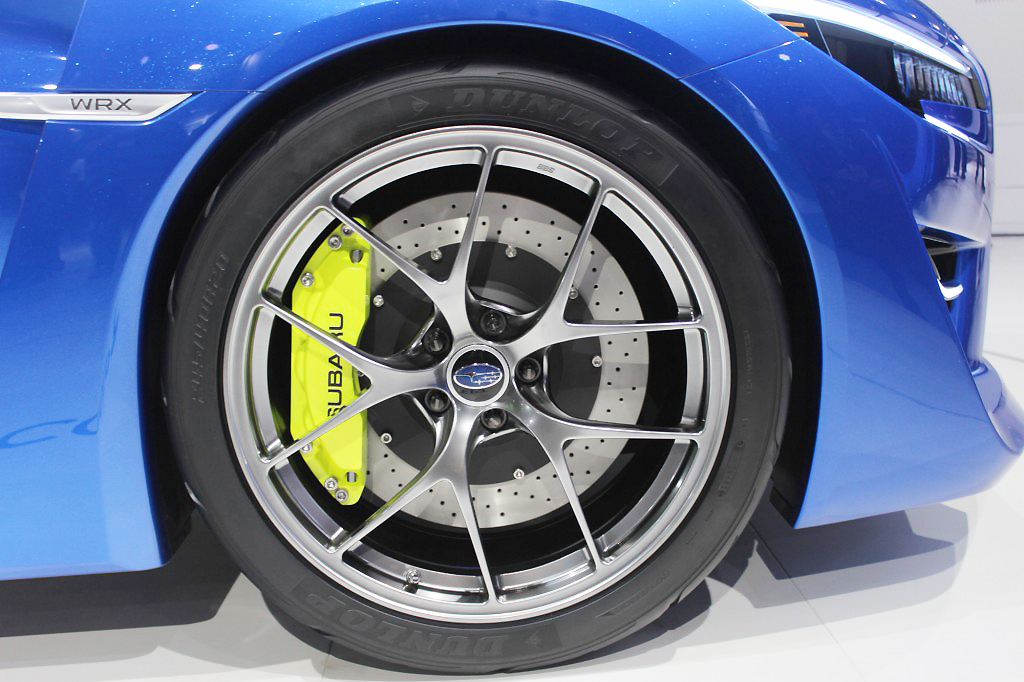 2013 Subaru WRX concept wheel at the 2013 New York Auto Show
2013 Subaru WRX concept wheel at the 2013 New York Auto Show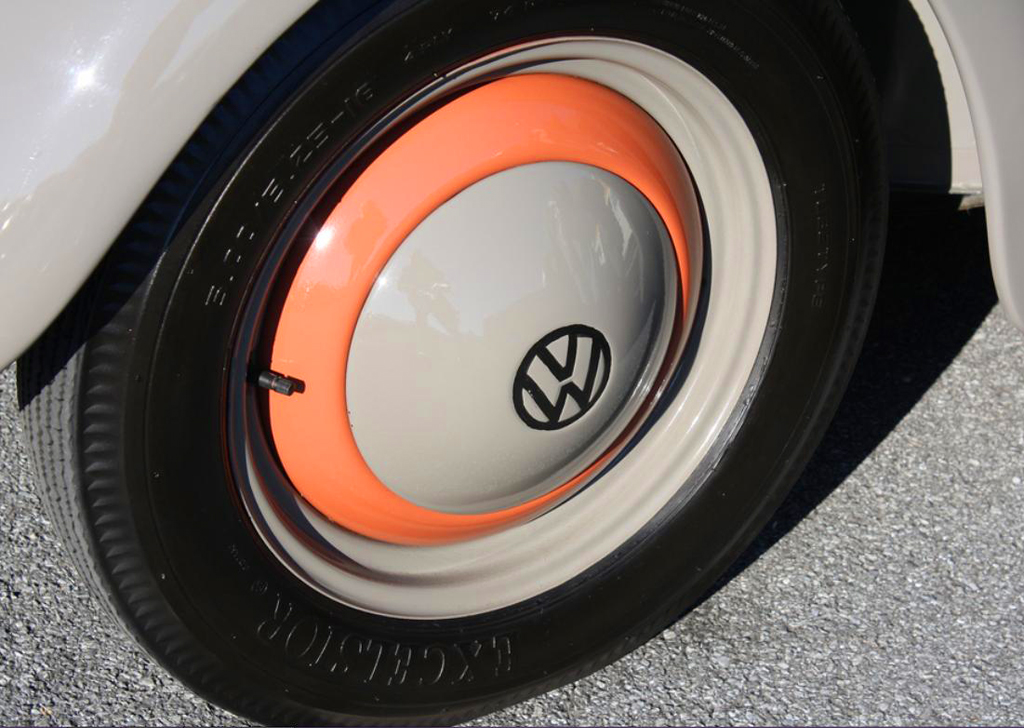 1952 Volkswagen wheelPhoto credit: L. Jacobs
1952 Volkswagen wheelPhoto credit: L. Jacobs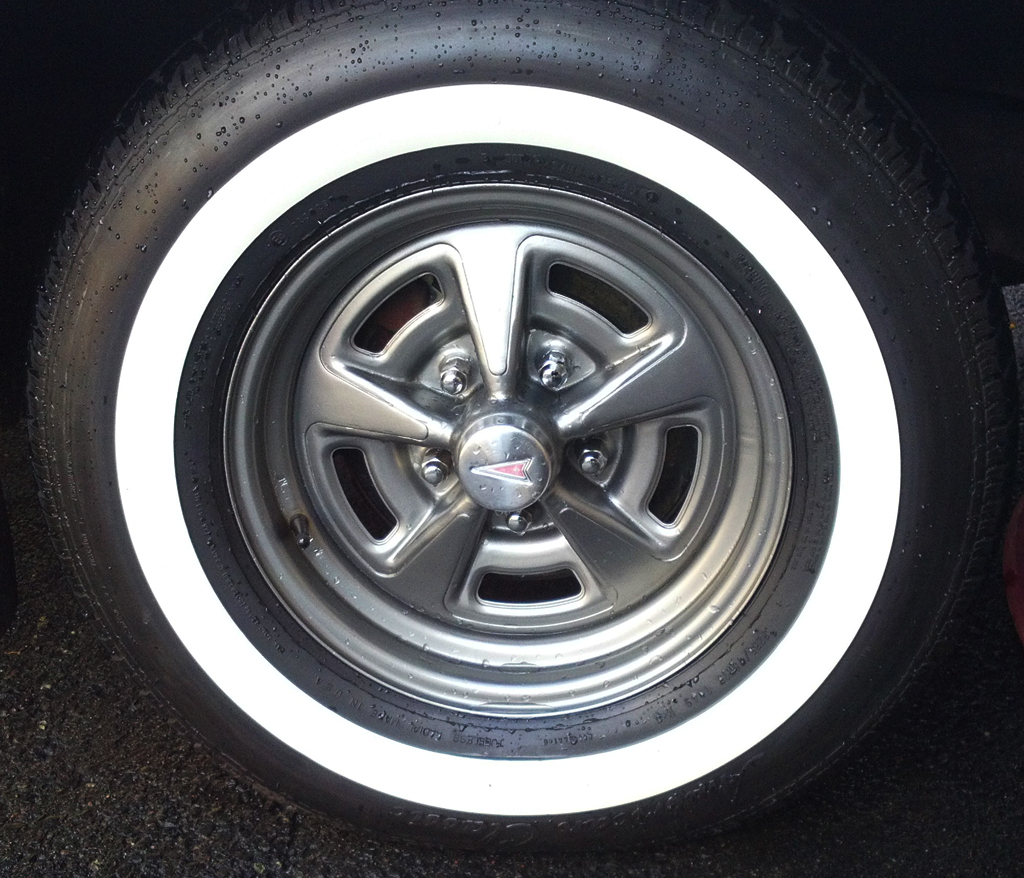 1975 Pontiac Grand Ville rallye wheelPhoto credit: Sean Connor
1975 Pontiac Grand Ville rallye wheelPhoto credit: Sean Connor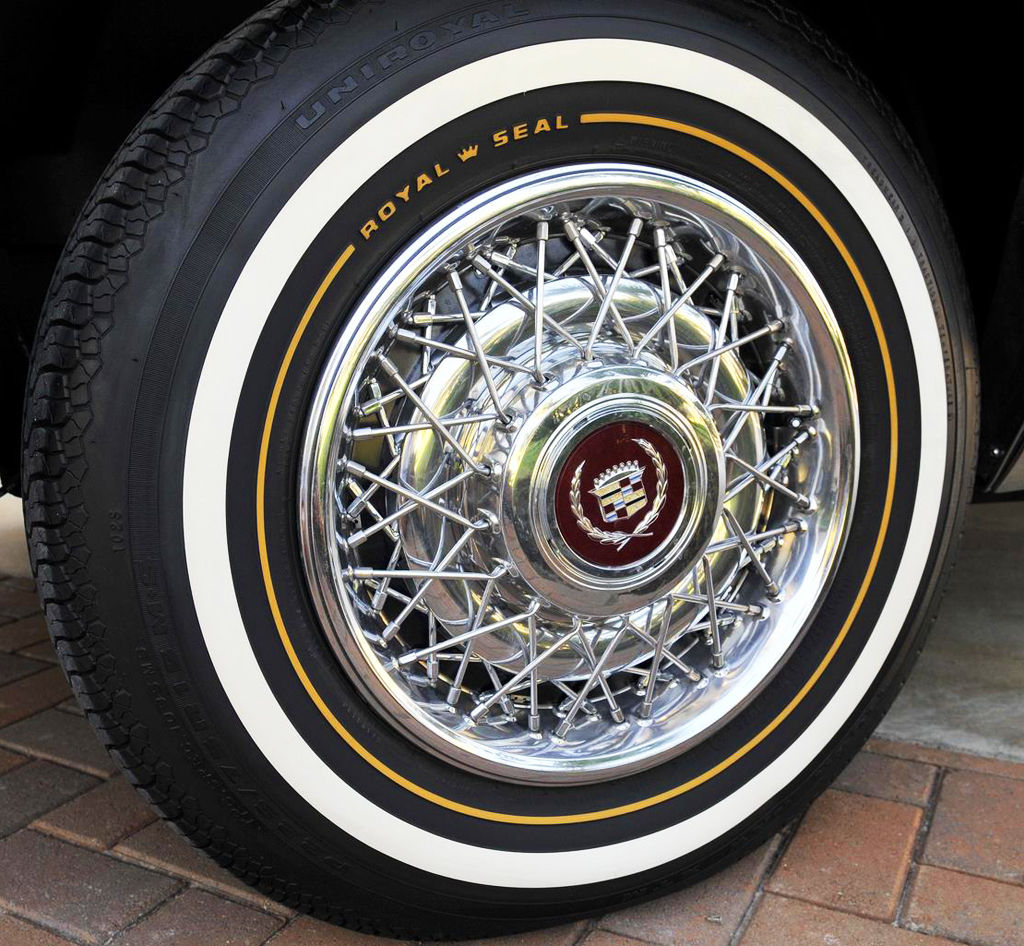 1991 Cadillac Fleetwood Brougham wire wheel cover
1991 Cadillac Fleetwood Brougham wire wheel cover Dodge Charger all-black police car wheel a
Dodge Charger all-black police car wheel a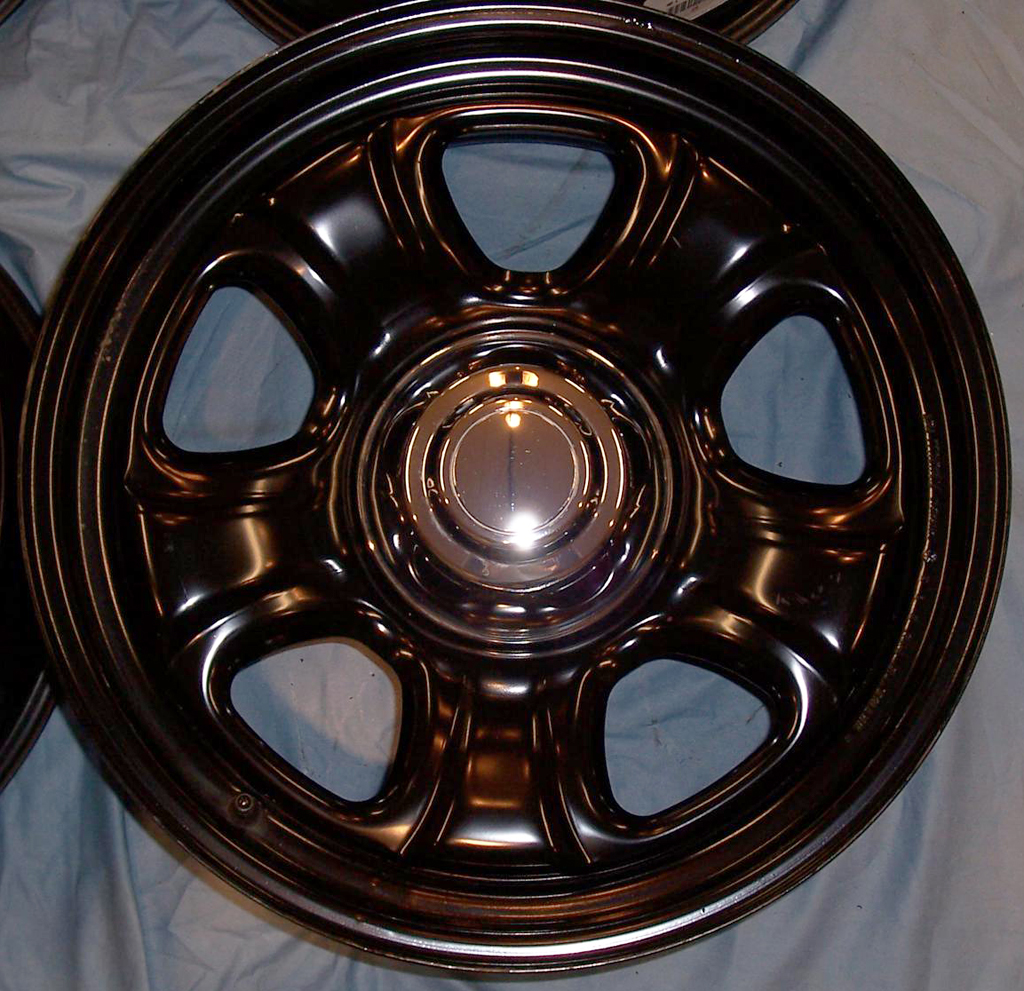 Dodge Charger all-black police car wheel b
Dodge Charger all-black police car wheel b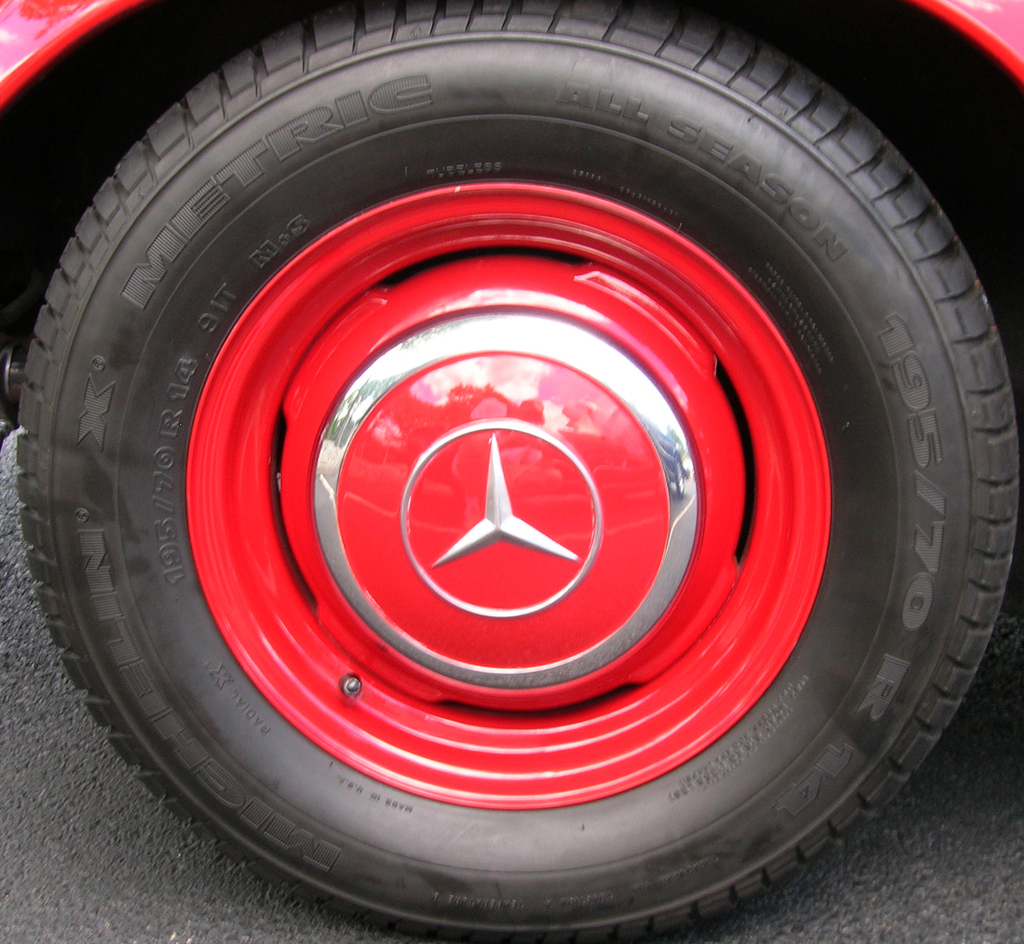 1963 Mercedes 230SL wheel at the 2013 June Jamboree in Montvale, NJPhoto: Sean Connor
1963 Mercedes 230SL wheel at the 2013 June Jamboree in Montvale, NJPhoto: Sean Connor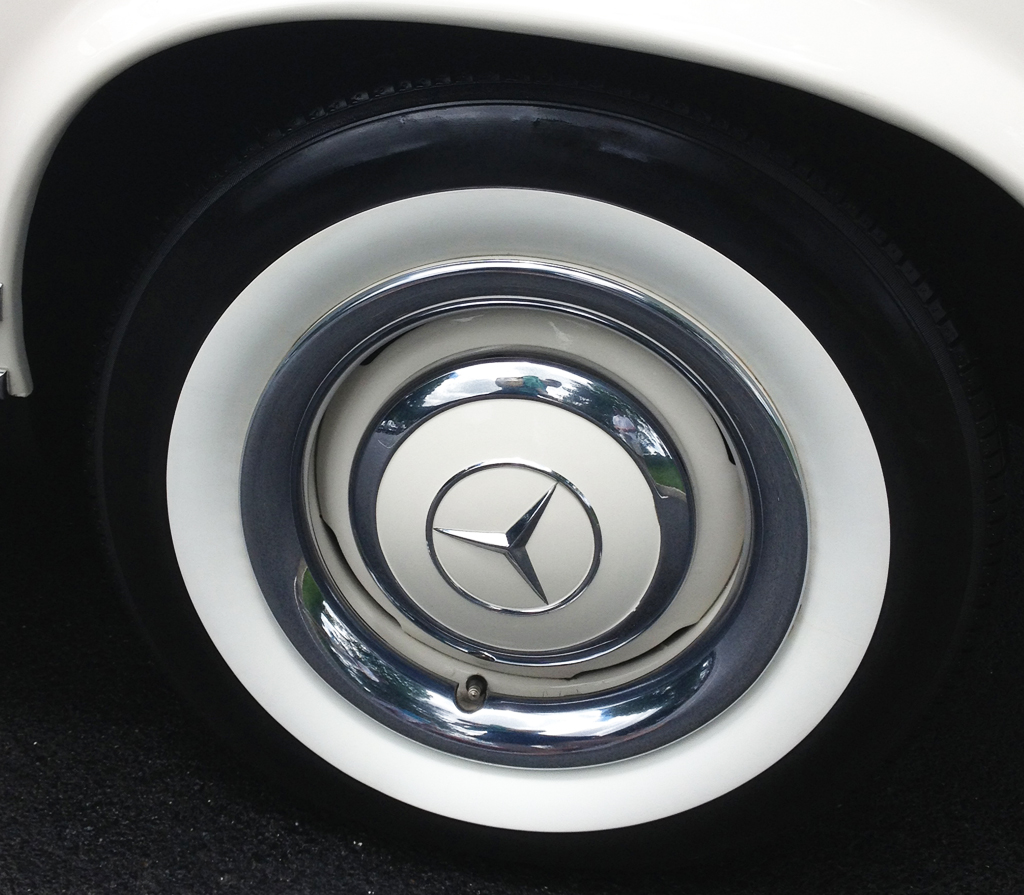 1964 Mercedes 230SL wheel at the 2013 Mercedes-Benz June JamboreePhoto: Kristi BurnsPreviousNext
1964 Mercedes 230SL wheel at the 2013 Mercedes-Benz June JamboreePhoto: Kristi BurnsPreviousNext
Commentary – If the U.S. Constitution had been written in the 20th century, the automobile would have found its way into the Bill of Rights
(by contributor John Bleimaier)
There is no question in my mind that if the US Constitution had been written in the 20th Century, the automobile would have found its way into the bill of rights. Freedom of religion, freedom of speech, freedom of assembly, the right to bear arms, the right to a jury trial, the abolition of cruel and unusual punishments – these would have been joined by the right to drive, free access to highways and bridges, as well as freedom of vehicular choice. Thomas Jefferson and his colleagues were molded by the independence of the frontier life style. Self-reliance and self determination were the natural by-products of an environment far removed from king and constabulary.
When the automobile came on the scene a century and a quarter ago, it was just in the nick of time to reclaim the sense of freedom that could otherwise have been eroded in a hyper organized modern society. It’s our job as car fanatics to ensure that the inalienable rights attendant upon individual locomotion are recognized, protected and enshrined in the sacred document of the republic. The 9th amendment to the Constitution guarantees that all the rights not specifically mentioned in the Bill of Rights and elsewhere are nonetheless vouched safe to the people. Well and good.
However, the Founders recognized that government is an inherently voracious entity which devours freedoms and resources. Thus they framed a unique statement of rights and responsibilities replete with checks and balances. They also provided for amendment of the Constitution in order for this document to address changing times. We now need a new constitutional amendment stating that driving an automobile is a basic human right, that governments and their agencies may not charge for the use of public roads and that there is fundamental automotive freedom of choice.
From the dawn of the automobile era Americans took for granted their inherent right to utilize this miraculous new instrumentality as they pleased. Note that in Great Britain and elsewhere in the Old World a very different mentality prevailed. A hundred years ago British law required motorists to drive behind a flagman on foot warning of an approaching motorcar. How thoroughly un-American.
There is a natural bureaucratic tendency to erode freedom even in our democratic society. Behold the invidious notion that driving is not a right but a privilege. Furthermore, governmental authorities have arrogated unto themselves the prerogative to charge tolls for the use of roads and bridges which were built with public funds. Big brother has even devised electronics which register your use of turnpikes and parkways so that you can be sent a monthly statement. Additionally a federal agency has the temerity to tell the populous what cars it may and may not import. The Founders would be indignant.
Because the aforementioned infringements have gradually crept into the body politic notwithstanding our Constitutional protections, it is time to amend that mighty instrument to set right the injustice.
If driving is a right your driver’s license can not be revoked without a trial before a jury of your peers. The anomaly of charging citizens for the use of public roads must be recognized for what it is: extortion. The convoluted red tape surrounding the importation of uncertified foreign cars must be cut. When we implement the foregoing agenda we will have given real meaning to the phrase, “land of the free, home of the brave.”
-John